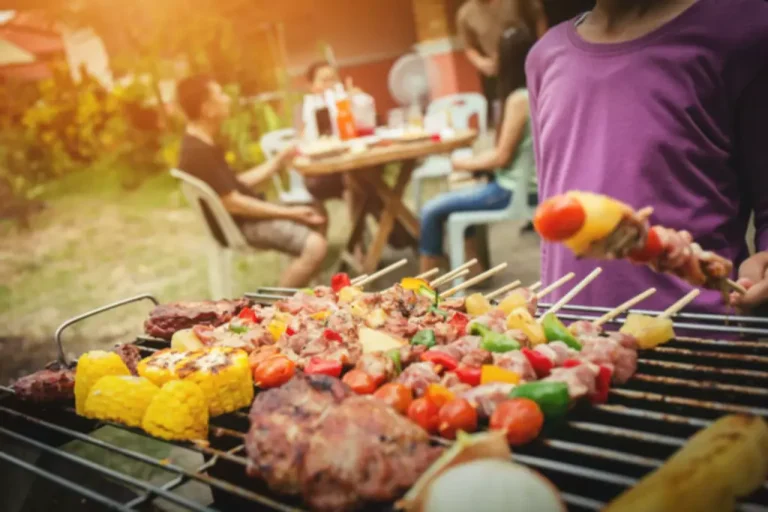
These person-level differences also may prove useful, however, in developing models to understand who is most likely to transition from a “normal” drinking habit to a drinking problem. As noted by Wilson (1982) and Sher (1987), a major objective of TRT research has been to investigate both the underlying mechanisms mediating alcohol’s effects on emotion and the conditions under which alcohol is reinforcing, including understanding in whom the effects are most pronounced. Several mediators have been proposed to explain alcohol’s effects on emotion, including some that stem directly from the various models discussed earlier when addressing TRT (see Sayette et al., 2016 for elaboration). Regarding the group formation project more specifically, our data suggested diminished emotional inertia may underlie the capacity of alcohol to improve affective states (Fairbairn & Sayette, 2013). Further, as detailed below when considering gender, alcohol’s effects on emotional contagion (Fairbairn, Sayette, Aalen, & Frigessi, 2015a) may help to explain the impact of alcohol on emotion in a social context. With respect to moderators, the following sections address https://ecosoberhouse.com/ three individual difference factors that have been examined in our group formation project.
2. Mediators and moderators of alcohol’s effects during group formation
- These data led to the development of what eventually became known as the tension reduction theory (TRT) (Cappell & Herman, 1972; Conger, 1956).
- These study designs, although still correlational, can establish temporal precedence among antecedents and consequences of solitary drinking thus providing stronger information about the causal processes operating in the day-to-day lives of young people.
- The traditional gap between the laboratory and clinic lamented by Wilson (1987b) remains today, yet there is reason to hope that recent theory development and data acquisition regarding the effects of alcohol on emotion offer prospects for an improved translation of research into practice.
- If you are concerned that your drinking might become a problem, it is probably already a problem.
Studies using experimental mood manipulations could test the self-medication model of solitary drinking to determine whether heightened negative affect increases the preference to drink alone. These study designs, although still correlational, can establish temporal precedence among antecedents and consequences of solitary drinking thus providing stronger information about the causal processes operating in the day-to-day lives of young people. For instance, using similar methodology, Mohr and colleagues (2001) demonstrated that individuals engaged in more solitary drinking on days with more negative interpersonal experiences and engaged in more social drinking on days with more positive interpersonal experiences. These types of intensive longitudinal designs would be particularly useful with adolescent populations who are not legally permitted to drink alcohol in experimental lab settings. It is interesting to note that while drinking to cope seems to be the primary motivation for solitary drinking among adolescents and young adults, drinking alone may not be effective in ameliorating NA. For instance, in laboratory studies, young adults reported increased NA and decreased PA in solitary versus social drinking contexts 59–61,72–74.

Water Monitoring and Data
Examining the reasons that people use and misuse alcohol remains a research priority. For more than three-quarters of a century, experimental research has investigated alcohol’s reinforcing properties. Allowing for subtle variation, the basic idea has been that alcohol consumption would prove reinforcing as a consequence of its capacity either to relieve stress or to enhance positive emotional experiences. Despite its intuitive appeal, however, by the early 1970s, reviews of this literature revealed surprisingly unreliable effects of alcohol on emotional states.

You Have Engaged in Behaviors to Try and Control Your Drinking.
- In contrast, the Global Strategy to Reduce the Harmful Use of Alcohol, proposed by the World Health Organization, recommends a multisectoral approach, including a ‘whole-of-government’ strategy to protect public health from alcohol-related harm.
- A large prospective study showing that adolescent solitary drinking predicts the development of AUD symptoms in young adulthood.
- The way you view your behaviors and the way others view your behavior can be different.
- EMA methods could test hypothesized pathways during drinking episodes in real life and determine whether these associations predict the escalation of drinking and the development of alcohol problems over time.
- Many of us enjoy having a nice glass of wine with dinner, or throwing back a beer while watching the game with friends.
- And this came on top of early Americans’ other favorite drink, homemade cider.
Over the two days at my cottage, her drinking was to the point where she was unable to carry on a conversation and I had to help her to walk. Some people can see the problem coming and get a handle on it by avoiding triggers, developing new habits, and switching to nonalcoholic options. The distinction is “low-risk drinking” versus “harmful drinking.” Social drinking can be low-risk for most people if they know their limitations and can pace themselves. Many of us enjoy having a nice glass of wine with dinner, or throwing back a beer while watching the game with friends. And we all know that drinking to celebrate happy occasions, such as weddings and holiday gatherings, is very common in our society.
When primary care includes behavioral health services, people in addiction are more likely to seek treatment
Social drinking may be an endemic part of our society — and alcohol is an effective social lubricant in some situations — but drinking irresponsibly or excessively can lead to addiction and alcoholism. It’s a cumulative problem, and something you may find yourself facing at some point in your life. If you find yourself relating to even a few of these statements, stop drinking, socially or otherwise, and seek the help of an addiction treatment specialist.
Negative affect relief
It’s important to note that excessive alcohol consumption, even if it seems to occur primarily in social settings and doesn’t lead to immediate negative consequences, can still have serious long-term health and social implications. Regular heavy drinking can lead to physical and mental health problems, addiction, relationship difficulties, and legal issues. Preventing the negative consequences of social drinking involves a multifaceted approach that includes setting personal limits, practicing mindful drinking, and understanding the risks involved.

Current research on positive affect and social bonding is summarized, and future research and clinical implications are addressed. Most adolescents and young adults who drink alcohol only do so in social settings (Creswell et al., 2012; Fairbairn & Sayette, 2014), with ¾ citing “to have a good time with friends” as the primary motive for their alcohol use (O’Malley et al., 1998). Consideration of the context in which drinking occurs has important implications for understanding risk processes for the development of AUD (Creswell et al., 2014).

Today, alcohol continues to function as a popular form of socialization all over the world. From Oktoberfest in Germany to America’s thriving craft beer culture, social drinking is considered the norm. From ancient Greece to early colonial settlers in America, wine, beer and other alcoholic beverages can create friendships and connections with others. The act of drinking socially is considered an integral part of American society, but it’s been part of human civilization for millennia. Even if you’re not planning a night where you’re going to get drunk, it’s considered socially acceptable to have a beer or two or a glass of wine with dinner when you’re hanging out with friends.
(For example, maybe it was safer to drink than untreated water—fermentation kills pathogens.) Slingerland questions social drinking and drinking problem most of these explanations. He belatedly realized how much the arrival of a pub a few years earlier on the UBC campus had transformed his professional life. “We started meeting there on Fridays, on our way home,” he told me. “Psychologists, economists, archaeologists—we had nothing in common—shooting the shit over some beers.” The drinks provided just enough disinhibition to get conversation flowing. Without them, Slingerland doubts that he would have begun exploring religion’s evolutionary functions, much less have written Drunk. At a talk he later gave on wu-wei at Google, Slingerland made much the same point about intoxication. During the Q&A, someone in the audience told him about the Ballmer Peak—the notion, named after the former Microsoft CEO Steve Ballmer, that alcohol can affect programming ability.
Persons carrying the 7-repeat allele reported increased perceived social bonding after drinking alcohol, relative to placebo and non-alcohol control beverages, while alcohol did not affect perceived social bonding of 7-absent individuals. Research is needed to replicate this candidate gene finding, in a field where replication has been elusive. Nevertheless, use of an experimental design is considered to be critical for further advancement of gene x environment studies in psychopathology (Moffitt, Caspi, & Rutter, 2006; Rutter, Pickles, Murray, & Eaves, 2001). The social context of drinking turns out to matter quite a lot to how alcohol affects us psychologically.

